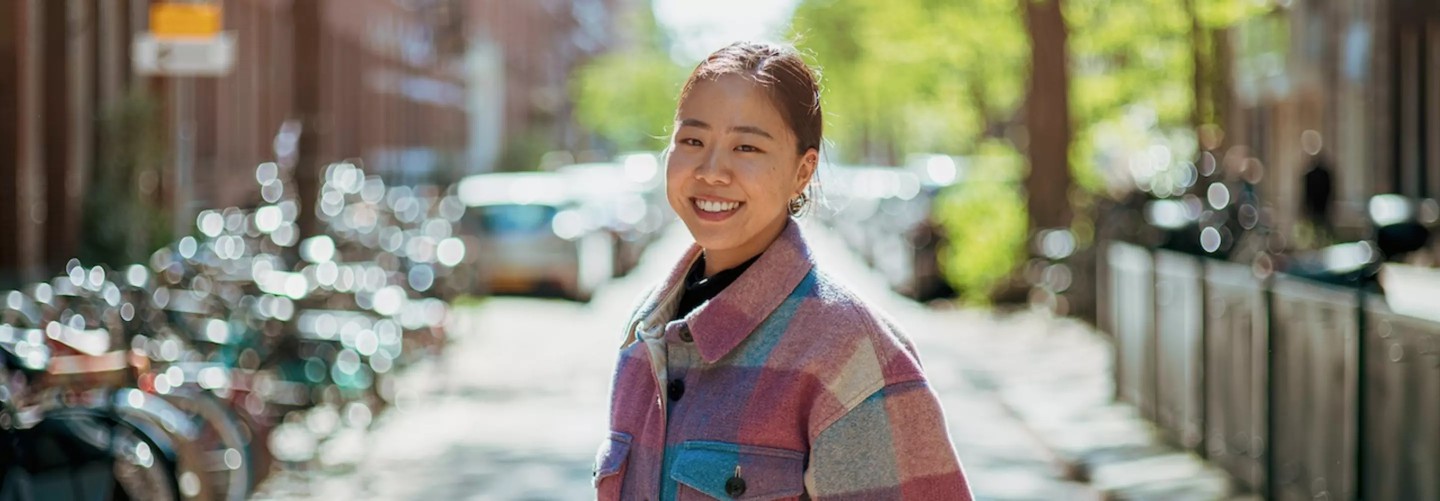
Helping others by being yourself.
After graduating with a degree in Economics from Japan’s prestigious Waseda University, Ayumi Igari began working for an insurance company before joining TYPICA as the community manager for Europe. “I want to be someone that people my clients and customers can depend on, and to be aware sensitive to of their needs,” says Ayumi, currently based in Amsterdam. We spoke to Ayumi to find out more about how her work ethic developed, what it’s like to live in Amsterdam, and what she thinks of life at TYPICA.
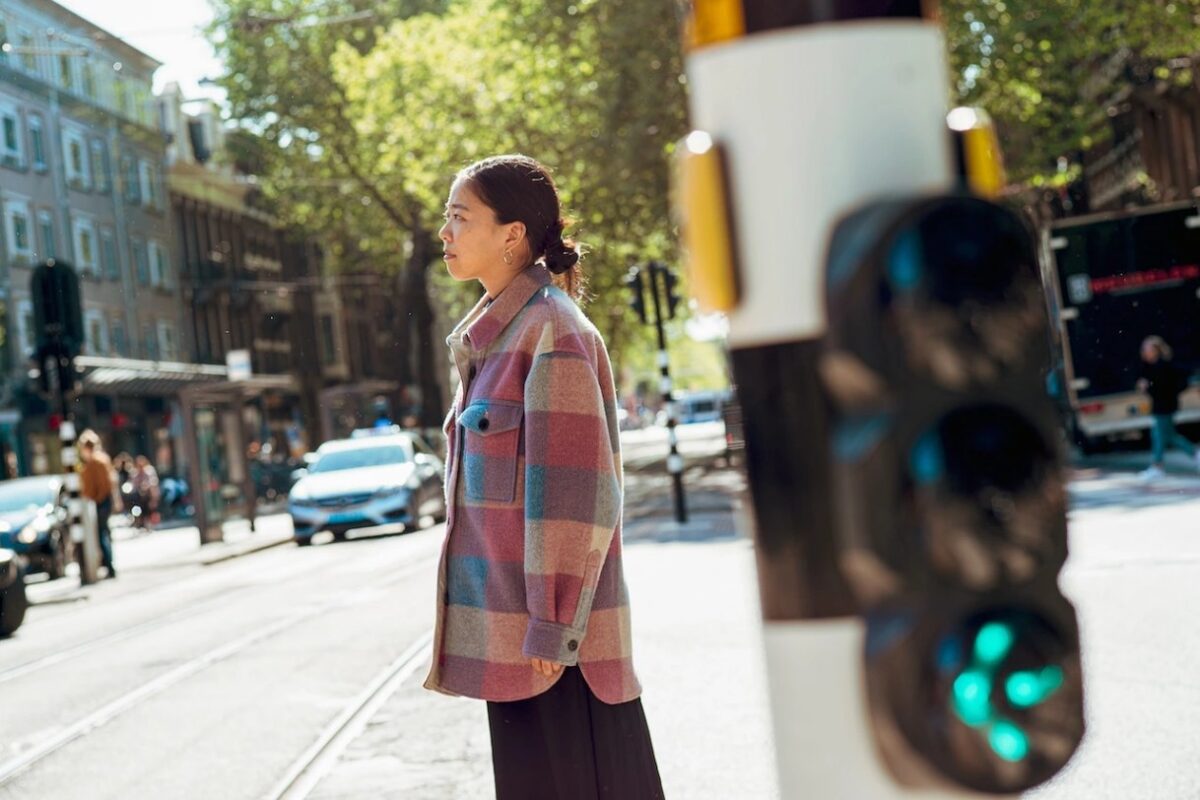
Finding a new me at TYPICA
It’s the start of 2020 and the COVID-19 pandemic has Japan and the world in turmoil. Working at an insurance firm in Tokyo, Ayumi was thinking about what she wanted to do next.
She had been at the company for three years, working in solution development providing apps and other IT tools to the sales team. A big part of her role was talking with the sales team to find out what they needed, and coming up with a product that answered their problem. It was one of the aspects of the job that Ayumi loved.
But when the Japanese government announced a state of emergency, and work from home became the default, there was much less chance for human interaction. And in turn, Ayumi began to think more seriously about exploring other opportunities.
Ayumi didn’t want just a change of job, however, she wanted a new life. She decided that, whatever the job, it had to be based in Amsterdam. Back in university, Ayumi had spent a year in Amsterdam and she swore to herself that one day she would go back. This was her chance to keep that promise.
One day, browsing through the job ads on the internet, she came across TYPICA’s post for the head of the Europe branch.
“Their website was out of date, and the design was kind of clunky. But when I read the blog, I could feel the personality of the people working there. I knew it was a company with a difference. The job itself was not only a totally new role for me, it was in a completely different country, so I’d be lying if I said I wasn’t nervous. But the itchfeeling to try something new and take on a challenge was stronger.”
The online interview with Masashi Goto, TYPICA’s founder, was originally scheduled for one hour. Two hours later, they were still chatting. As Ayumi listened to Masashi’s ambitious vision for the company, and understood what the business was trying to achieve, she began to feel slightly overwhelmed by the task at hand and wondered if she had what it took. In the end, after thinking it over, Ayumi decided that TYPICA needed someone with the confidence to pull it off, and that wasn’t her. Shortly after the interview, she withdrew her application.
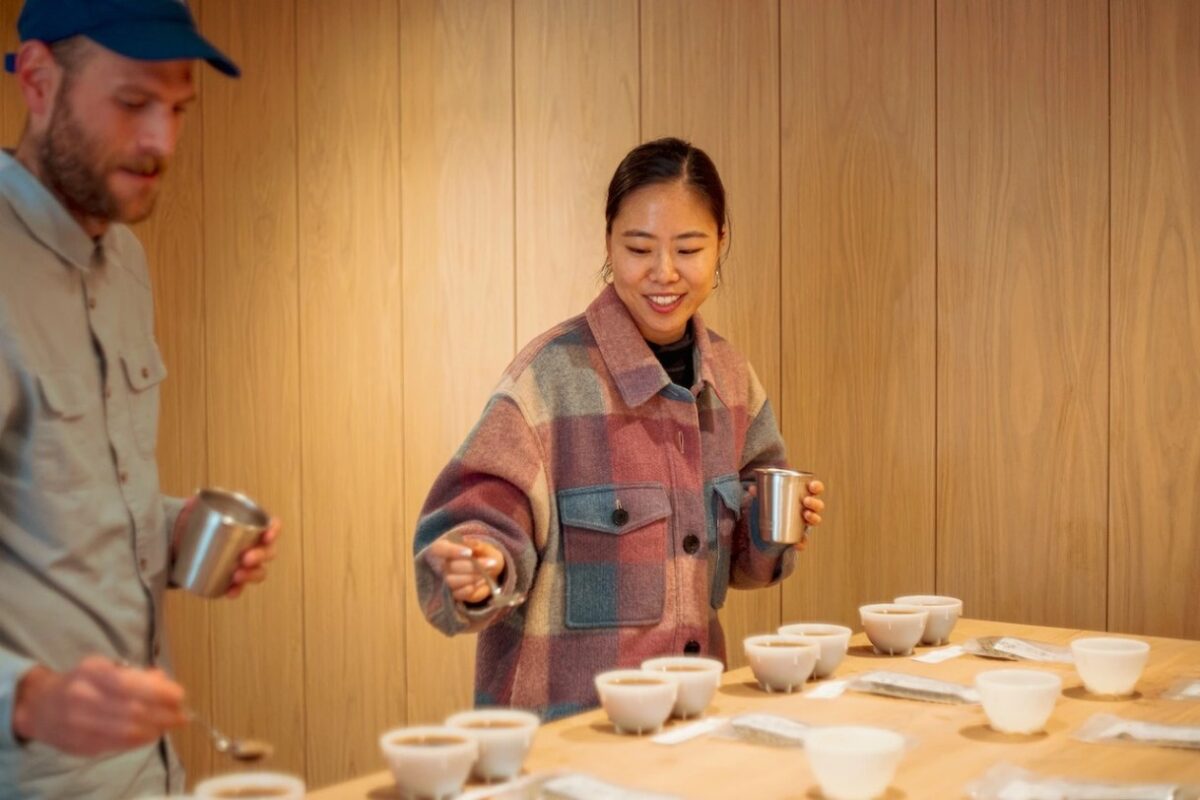
But she couldn’t withdraw the idea from her head. Every spare minute, she was checking the website or peeking at the social media. It became one of the highlights of her day.
Three months after the interview, in June 2021, things began to change. Ayumi received a call from the newly-appointed Head of Europe, Shin Nishio. “We’d like you to become the community manager for Europe. What do you think?”
Ayumi could hardly contain her excitement at this unexpected turn of events. She immediately accepted the offer, handed in her resignation, and flew off to start a new life in Amsterdam. By October 2021, Ayumi was one of the team at TYPICA.
“One of the things I love about my job is seeing how the work I’m doing is actually helping people’s businesses. Acting as a mediator for online events between roasters and coffee farmers, or getting feedback, it’s great having this direct connection with the people I’m supporting.
And getting to share in their wins is one of the most rewarding aspects of my role. For example when we are sourcing a green bean supply, the first step is getting in touch with the coffee farmer. Then we put together an offer list and bring it to the roasters. At the same time, we keep the farmers informed about the roasters reactions and let them know the feedback we get at cupping events. It’s like being part of a relay team. We’re passing the baton on to the next person as we all head toward the same goal.”
As a student, Ayumi was more interested in competing in individual sports like tennis and swimming than being a team player. Even as an adult, she’d avoided putting herself in a position where she was responsible for someone else, and had never been comfortable being part of a group, but at TYPICA, Ayumi found a new side of herself.
“At TYPICA, you’re part of a group, but everyone is independent. We each have tasks and skills unique to our role and personality, and we’re all working together as a unit, balancing out our strengths and weaknesses as a team. That makes it an easy environment for me to work in. It’s also great how passionate everyone is about what they do. Coffee is a huge part of people’s lives at TYPICA, both at work and play, and it’s amazing to work with people who’ve made their love for coffee their career. Working at TYPICA has really taught me the value of working with other people, and how great it is to be part of a team.”
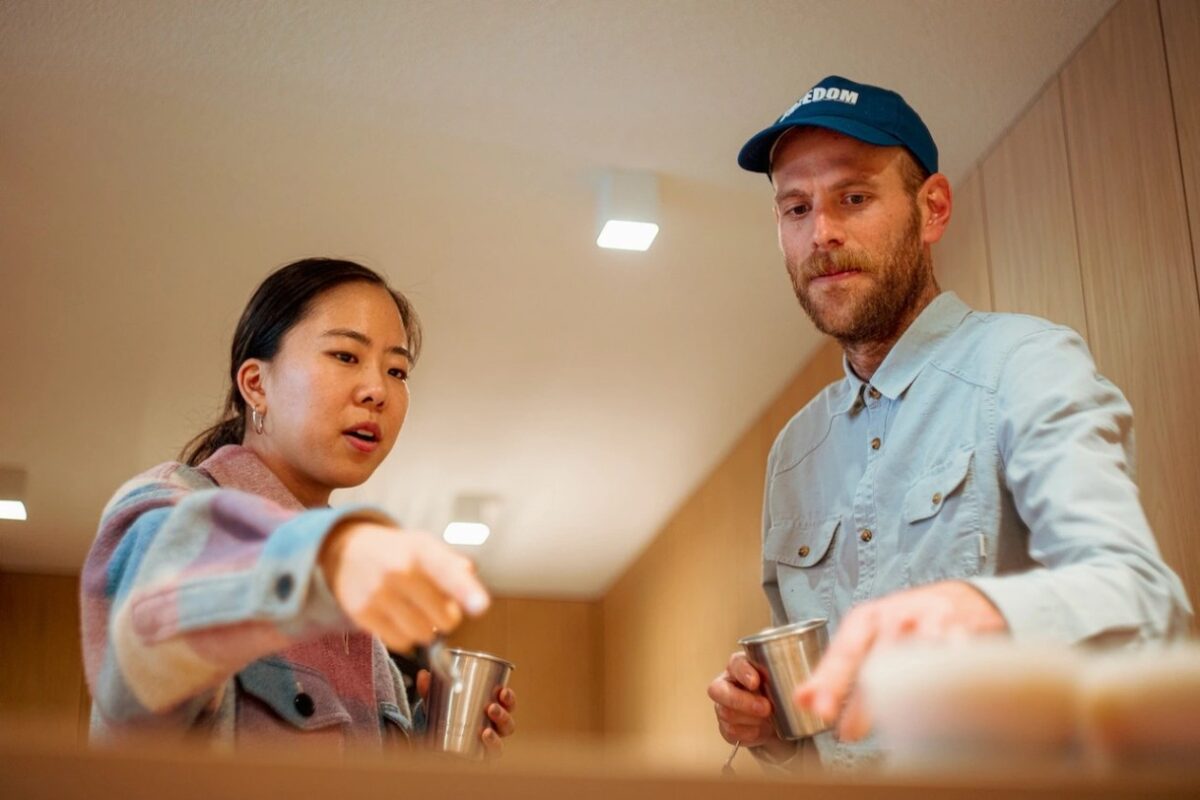
New school, new you. Learning to adapt the hard way.
For Ayumi, being someone that people her customers and clients can depend on, and being sensitive to their needs is at the core of her work ethic. She puts this down to the experience she had of frequently moving schools as a child. Born in New York, Ayumi moved to Japan when she was in pre-school. In the following ten years, she moved house around six times, always changing schools, and sometimes even countries.
Whenever she found herself in a brand-new community, Ayumi was always thinking about how to fit in.
“I’ve often been in situations where I didn’t know what to do or who to ask, and I think that’s why I can’t stand seeing anyone alone or lost. It’s this that guides most of my actions. I tend to make friends with loners or people on the outside of social groups, helping them connect with other outsiders. I guess because I see some of myself in them.”
Regularly moving away, saying goodbye to friends almost as soon as she’d met them meant that Ayumi soon learned how to adapt.
“Sometimes it felt like every time I changed schools, I was a different me. I’d be interested in different things, and the people I would hang out with would be a different crowd. At one school I might be a really geeky, bookish type. Then at the next I’d be all for sports. But I wasn’t changing who I was. All of those qualities were me. I was just choosing which one I wanted to showto let show. I think it’s natural to have lots of different aspects to our personality. I mean, who wants to be one-dimensional?
Having met so many different types of people as a child, I learnt to accept that there are always going to be people who it’ll be hard to get on with. When that happens, it’d be easy to say, “I just don’t like them.” But that kind of negativity will show. It’s not good for you or other people. Instead, I always try to find something about them that I can empathize with, something that interests me. I think that’s one of the keys to adapting.”
Ayumi hasn’t always been this positive. There was a time when she’d find herself in a new school, wishing she was back in her old one. But one day, she realized that the world didn’t revolve around her. She decided to leave the past in the past, and approach each new start with a fresh and open mind.
At the same time, for 27-year-old Ayumi, digital technology has been around since she was a child and having access to AIM (instant messaging app) and Facebook from elementary school meant that even if she moved away, she could still meet her friends whenever she wanted. It made the moves easier to cope with.
“Even if we live apart, it’s not like we’d never see each other again. Knowing that I can just hop on a plane and see my friends whenever I want makes it easier to be apart”
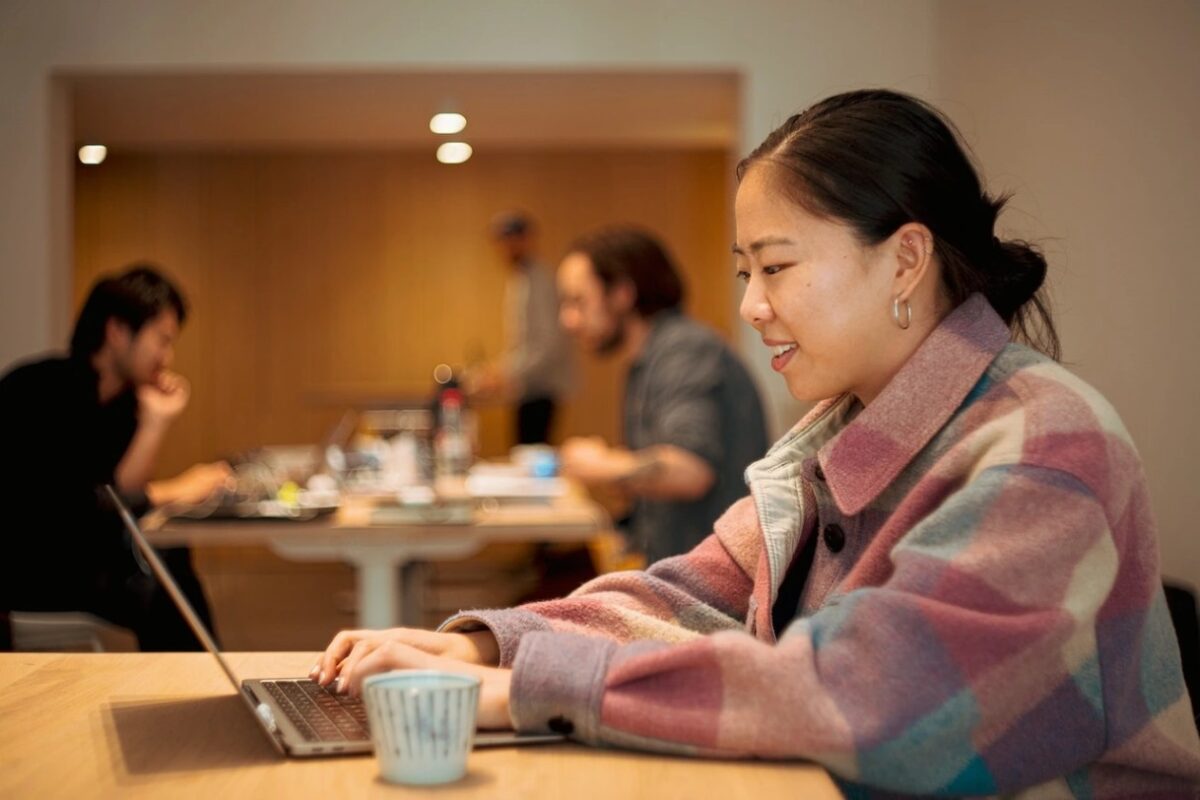
Be true to yourself
For most kids in America, Saturday is when you get to hang out with your friends, go to parties or just relax. But not for Ayumi. Saturday was when she was forced to go to Japanese school.
Not only did it mean she had to sacrifice her free time while her friends were off having fun, she also had extra Japanese homework. To Ayumi, being Japanese was nothing more than an annoyance that stole her freedom.
“I wanted to be a part of the culture I was living in, and there was also a part of me that didn’t want to leave America. But I think my parents were worried I’d become too American if I stayed any longer, so when I was finishing Junior High, they dragged me kicking and screaming back to Japan,” she jokes.
Ayumi came back to Tokyo, where she’d lived from ages five to nine, and started going to an all-girls private school. But used to the freedom of American schools, the rigid rules of the Japanese educational system were a hard pill to swallow. Compulsory school uniform, no hair coloring, no makeup, no earrings… coming from America, the rules felt irrational, constricting and assimilating.
Three years later and Ayumi was about to reach breaking point. She needed to get away. In February of her first year at university, Ayumi shouldered her backpack and headed off overseas with her friend.
“My motto for life is always be yourself. 110% true to who you are. I don’t want to be forced to be something I’m not just because I’m Japanese or people expect it of me. I want to be me, Ayumi. That’s all.”
It’s this desire to break the mold that drew Ayumi to Amsterdam.
“America has a huge immigrant population, but somehow their differences fade when you get to the second and third generation. When I visited Amsterdam, it was different. People from all over the world are here, just being themselves, showing who they are, and where they’re from in all its purity. It’s like being told, “you do you.” And it felt so right.
Five years on, no longer a visitor but a resident, I’m more aware than ever how important it is to live a life that feels right, that makes me happy. Moving abroad was a huge decision for me, and there were times when I wasn’t sure if it was the right one. But now I’ve done it, I wished I’d done it sooner! I know that even if I mess up, I’ll manage somehow to turn it around for the better.”
Ayumi believes that her confidence stems from an experience she had as an elementary student. Although born in the US, Ayumi’s early education was in Japan. When she returned to America to join the third grade of elementary school, she hardly spoke a word of English. She couldn’t talk to anyone in the class and not being able to communicate meant she was left out. It was a frustrating and stressful situation for Ayumi, not more than ten at the time.
Her anxiety was so bad that she began to get eczema. One Christmas, in her letter to Santa, she told him that she no longer wanted to live. But eventually, it was the realization that the situation was not going to change that helped her come out of the shadows.
“My parents refused to let me take a day off school. Even if I missed the bus, they’d force me into the car and drive me there. In the end, it came to a point where I had to accept that this was my reality now. So I began trying to change my situation. I worked on my English in ESL lessons, and started making friends with people at sport meets and clubs. The more effort I made, the better things became. Soon I had a bunch of friends and school was not such a bad place.”
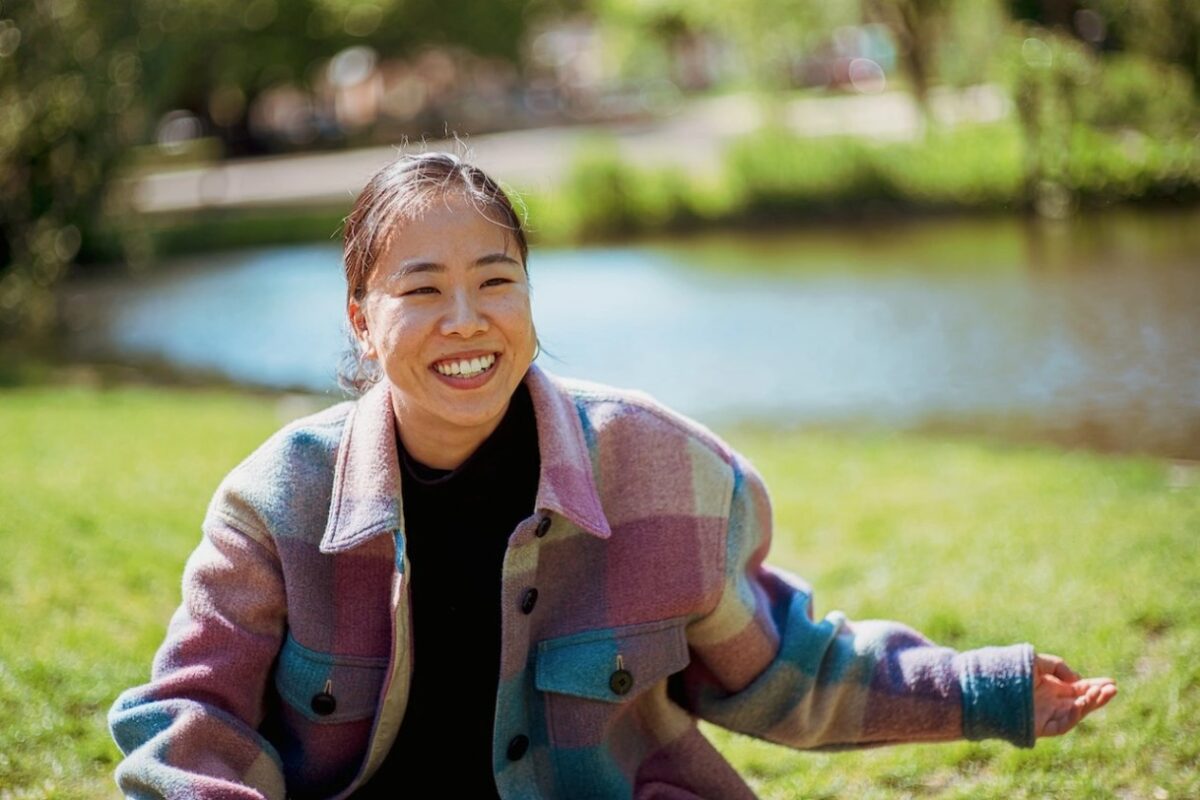
No time to be bored
Nine months since joining TYPICA, Ayumi feels she has finally found a place where she belongs. But in the beginning, she worried that her personality, which tends to go from one extreme to the other, would make it hard for her to stick with the role.
There was one time, at elementary school, when Ayumi did nothing but read books. This went on for three years. Bored with the books at the library, she begged her parents to buy her newly published books from the store. “Can’t you read slower? Or less?” her exasperated parents sometimes told her, fed up with the cost of supporting her reading habit. But once she entered Junior High School and discovered sports, that was it for reading. She never opened another book.
“Now that I’ve been at TYPICA for a while, I know that’s not going to happen here. There are so many new projects starting up all the time, I’m always being introduced to new ideas and topics. It’d be impossible to get bored.
Another thing is that, reading is something you do for yourself. But what I do at TYPICA is not for me, it’s for the producers and roasters. So it’s not just that I won’t be bored, it’s that I can’t be bored, I can’t allow myself to get bored. There are so many producers and roasters out there that I haven’t met yet. When I think about the possibilities, it’s hard not to get excited!”
Ayumi has been searching for a place where she can be faithful to the needs of others, and also be faithful to herself. It seems that at TYPICA, she has finally found it.
“My goal right now is to help build a world where everyone in the coffee supply chain is happy. My role changes with every project, so I don’t know what the future holds for me personally. But that’s okay. Because that’s who I am. And that’s how I like it!”
文:中道 達也
Photo:Shigeo Arikawa
